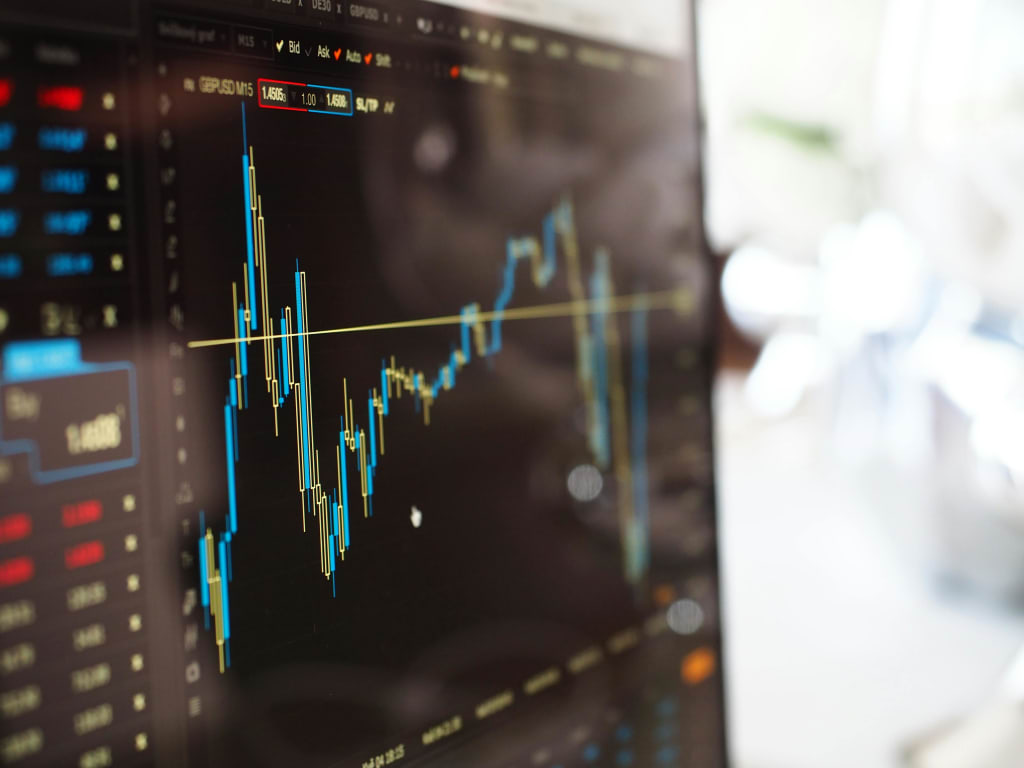Is Stock Trading Just Gambling?
There is overlap between gambling and trading, but ultimately it all depends on the way you approach the practice

I split my time between stock trading and writing. One of the questions I often get when I talk about my trading is the one in the title: Isn’t stock trading basically just gambling? After you’ve dedicated years learning about and perfecting your trading, it can feel a little grating having it reduced to what people do when they sit down and pull the lever on a slot machine. However, there’s some validity to the claim, so let’s explore the question in detail.
Types of Gambling
The first characteristic of stock trading that separates it from many types of gambling is that stock traders can often prove they have an actual edge. Backtesting and portfolio performance suggest that some techniques for stock trading can be consistently profitable. If the issue with gambling is that it is a fool’s errand and a triumph of impulsivity over good sense, then this needn’t necessarily apply to trading. This would separate it from many unsophisticated forms of gambling. However, sophisticated gamblers often have a real edge too. Counting cards in blackjack, for example, has been proven to be a reliable way to have net wins at the game over time. The methodology employed in counting cards is almost exactly what is done in many a trading system: It’s simply playing out odds to take advantage of a slight statistical edge over however many iterations of the game.
Counting cards and trading off of technical analysis are fundamentally identical. Does this mean trading is gambling? Well, what an insurance company does is practically identical these two as well. In fact, if you take a sophisticated sports gambler, a sophisticated macro trader, and a sophisticated insurance underwriter and look at how they conduct their business, you’d likely find that it’s remarkably similar. Each will first try to gather all the pertinent information they can on the subject to determine whether or not they find they can make a reasonable prediction of what will happen in the case at hand. They will then look at the odds (or terms) available to them when actually setting to establish the exchange (either one bet against another, one trade for another, or a series of payments against the chances of an eventual payout). Are all three gamblers then, or are none of them?
If the only qualification for becoming a gambler is that you’re willing to bet on future outcomes based on statistical odds or pattern recognition, then everyone is a gambler. The purchaser of the insurance policy is just as much a counterparty to the insurance company as the person taking the other side of a stock trade. Playing probabilities is a fundamental characteristic of human decision-making. Am I going to stop at this gas station or see if I can find somewhere cheaper further along on my trip? Am I going to wait for the elevator or just walk down from the 3rd floor — which will ultimately take more time? Do I accept this offer on my house or wait for a better one that may never come?
It’s very difficult to say the methodology employed by professional traders constitutes what most people would consider gambling. Yet, in what is a somewhat unsatisfying concession, then neither does what card counters or any other sophisticated gamblers do. But there is another very important tack to consider when unpacking this question: It’s not just what you do but how you do it.
The Real Difference
What often makes gambling such a bad habit is that it is compulsive, impulsive, and irrational. It is somewhat implied in the above assessment that this would not be the case for a trader. However, nearly every trader lapses into episodes of this at some point in their career — many for years. The thrill of putting on a trade, the euphoria of making money, and the fear of losing it, are all very real factors that sway a trader’s behavior. There are whole books and seminars on managing your emotions as a trader, and they’re a vital resource for anyone who wants to perform well in the profession over time.
One can make a strong argument, then, that trading, when done wrong, is indeed gambling. When it is done right, however, it is dispassionate, scientific, and reasonably predictable over the long run. When it is done wrong, it is nothing more than chasing a high like one might do at the roulette table. Many of the worst performing days I’ve personally had were days that I spent doing just that.
Specifically, traders tend to engage in something called “revenge trading.” After you take a loss, you abandon your trading system and jump back into the market prematurely, because you feel such an intense urge to make back the money you lost. This process can repeat to devastating consequence. Conversely, after winning, you’re riding high, and you feel like you’ve mastered the markets (much like a gambler feels that they now have luck on their side), and you once again, abandon the system and impetuously jump back into the market.
A proper trading system is a logical and reliable invention. However, the person employing that system is only human. When they are acting on that system as intended, they are something more than a gambler. When they deviate from it, and let their decisions be guided by emotions, they are reduced to nothing more than a common gambler.
Conclusion
Unsophisticated trading is gambling, and even the most sophisticated trader is sometimes a gambler. However, a professional trader is no more a gambler than a business owner trying to forecast how much inventory they need to order for the next 3 months or how much it is wise to spend in a given marketing campaign. We all have to play with probabilities. It’s impulsivity and emotional compulsion that make a gambler. So long as one doesn’t trade in this way, they are not gambling.
About the Creator
Martin Vidal
Author of A Guide for Ambitious People, Flower Garden, and On Authorship
martinvidal.co
martinvidal.medium.com
Instagram: @martinvidalofficial






Comments
There are no comments for this story
Be the first to respond and start the conversation.